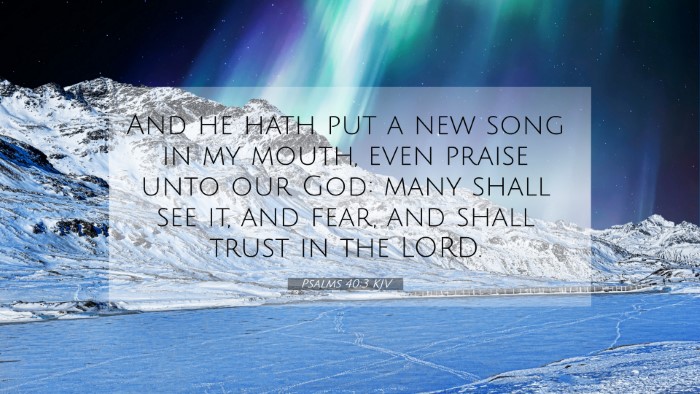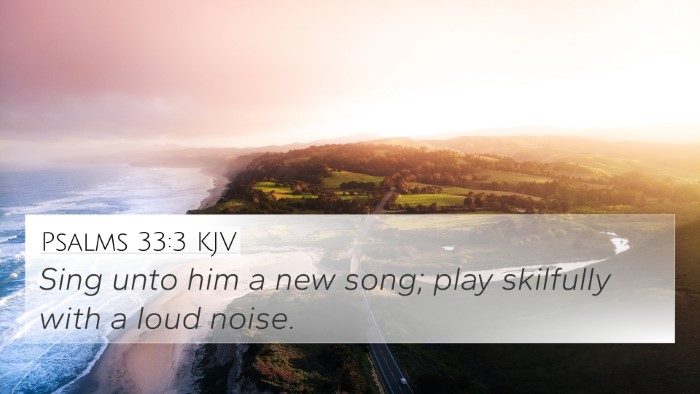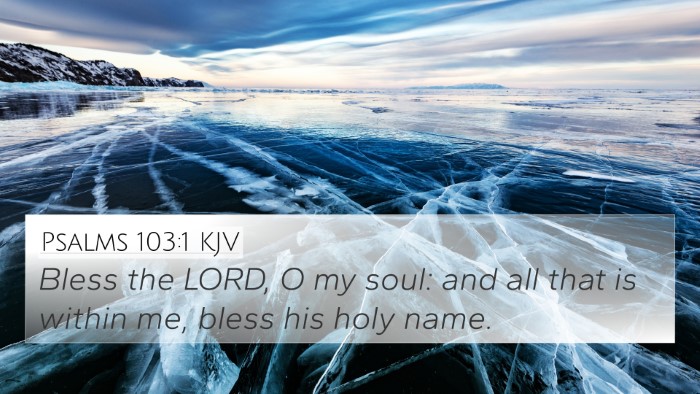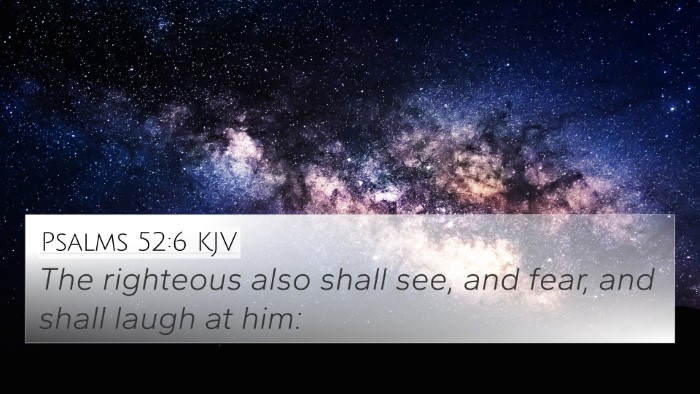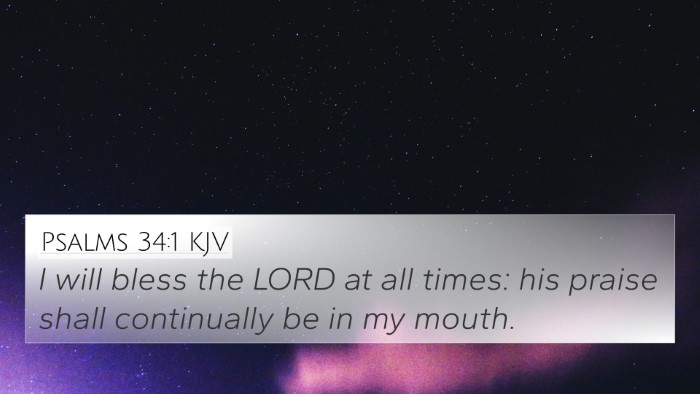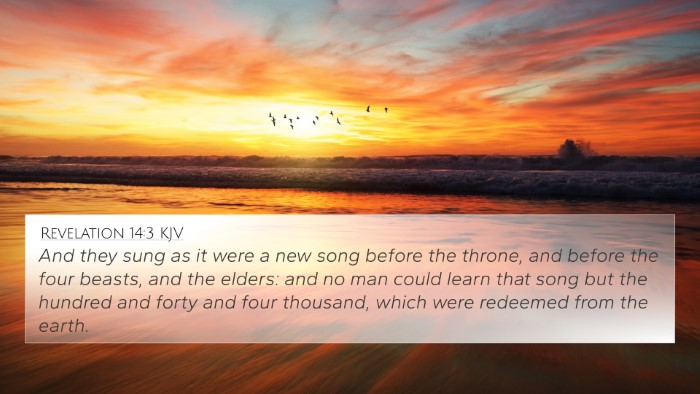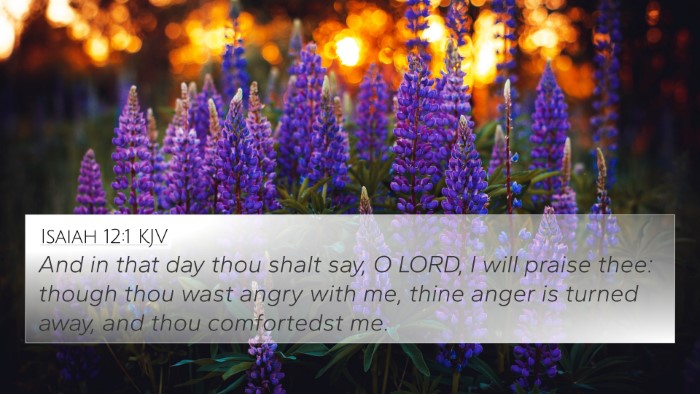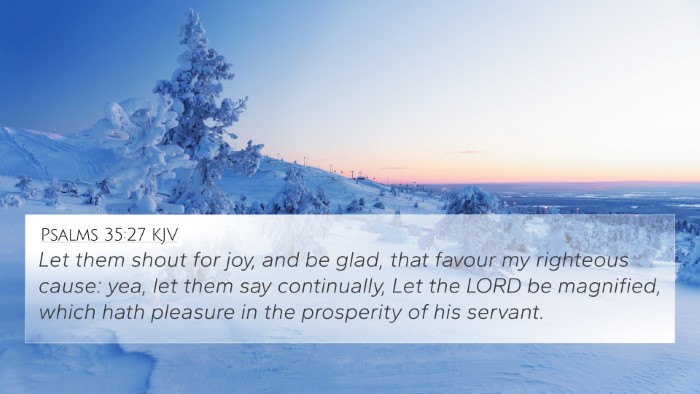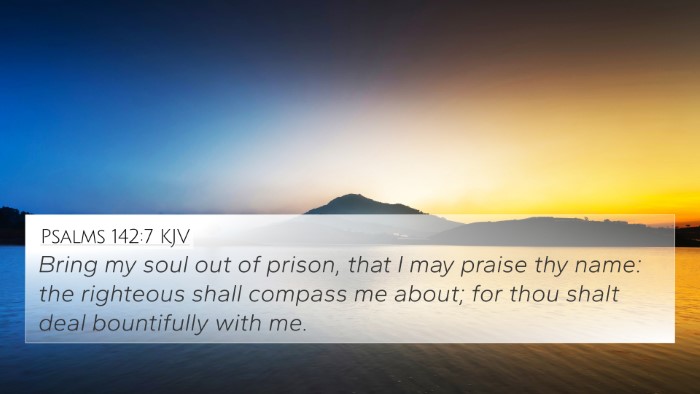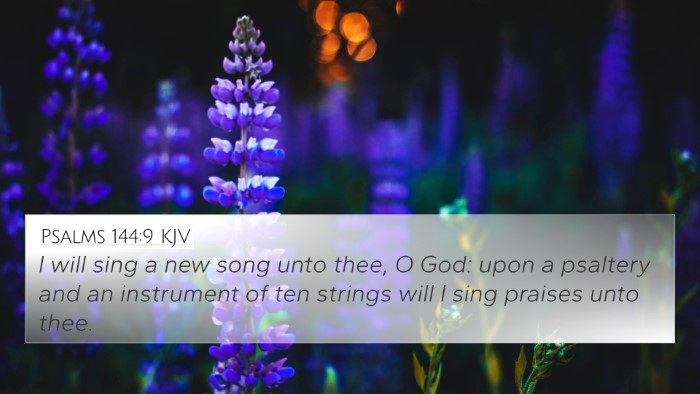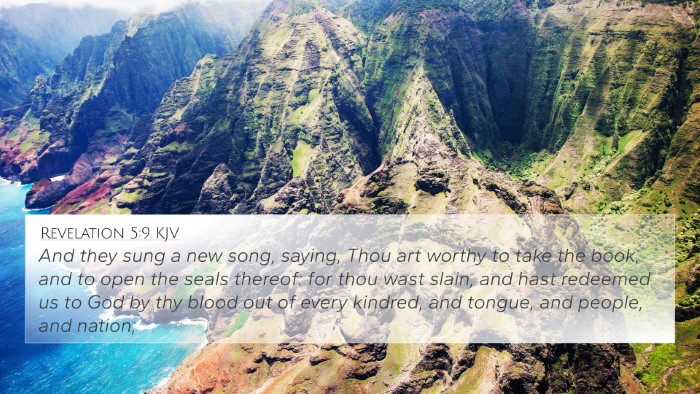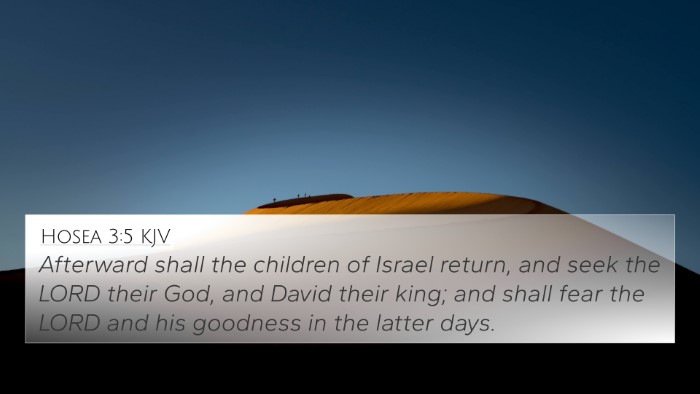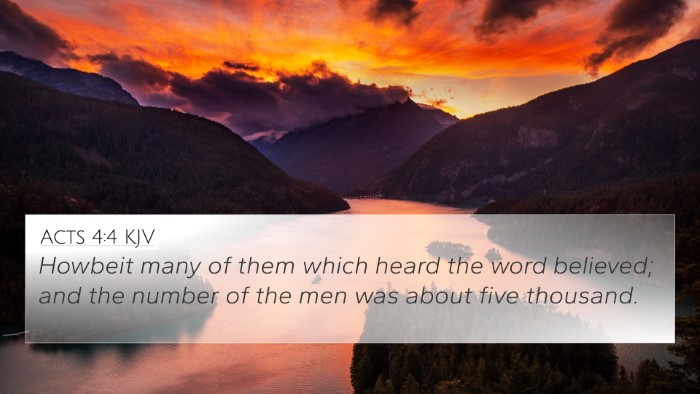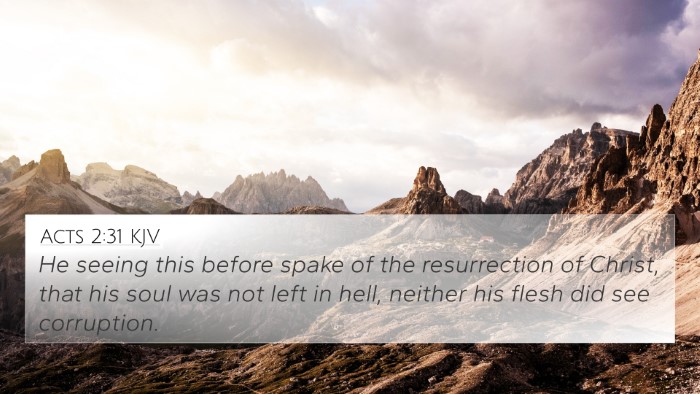Psalms 40:3 - Summary and Interpretation
Psalms 40:3 states: "And he hath put a new song in my mouth, even praise unto our God: many shall see it, and fear, and shall trust in the Lord." This verse is a powerful reflection of gratitude and the transformative nature of faith. It emphasizes the impact of divine intervention in the life of the believer, leading to a life of praise and testimony.
Meaning and Insights from Commentaries
The meaning of Psalms 40:3 can be deeply understood by examining various public domain commentaries that shed light on its significance.
-
Matthew Henry:
Henry notes that this verse illustrates the joy that accompanies salvation. When God rescues a soul, He instills a "new song," a metaphor for a renewed spirit filled with praise. This renewal not only beautifies an individual’s worship but also serves as a witness to others, inspiring them to seek God.
-
Albert Barnes:
Barnes comments on the phrase "new song," suggesting that it signifies a change in circumstances. It illustrates the pleasure and joy derived from experiencing God’s grace. The response of those who witness this new song involves both fear (awe) and faith, demonstrating the powerful influence of personal testimony.
-
Adam Clarke:
Clarke emphasizes that the "new song" represents a fresh expression of worship that arises after deliverance. He also connects this verse to the collective praises of the community of believers, suggesting that such songs can lead many to trust in the Lord as they witness the power of His intervention.
Thematic Connections
Psalms 40:3 finds thematic connections throughout the Bible, creating a richer interpretation through cross-referencing various scriptures.
-
Psalm 96:1: "O sing unto the Lord a new song: sing unto the Lord, all the earth." This verse reiterates the call to worship and praise God with freshness and joy, paralleling the themes in Psalms 40:3.
-
Isaiah 42:10: "Sing unto the Lord a new song, and his praise from the end of the earth..." This highlights the universal call to worship that reflects a transformation through God’s salvation.
-
Revelation 5:9: "And they sung a new song, saying, Thou art worthy to take the book, and to open the seals thereof..." This verse echoes the eternal response of worship in heaven, emphasizing newness in praise.
-
2 Corinthians 5:17: "Therefore if any man be in Christ, he is a new creature: old things are passed away; behold, all things are become new." This identifies the fundamental transformation that occurs within a believer, akin to the "new song" in Psalms 40:3.
-
Psalm 30:11-12: "Thou hast turned for me my mourning into dancing: thou hast put off my sackcloth, and girded me with gladness..." This verse complements the joyful expression of transformation that Psalms 40:3 speaks of.
-
Philippians 4:4: "Rejoice in the Lord always: and again I say, Rejoice." This encourages continual praise that resonates with the new song and the joy of salvation.
-
Isaiah 51:3: "For the Lord shall comfort Zion: he will comfort all her waste places; and he will make her wilderness like Eden, and her desert like the garden of the Lord..." This signifies restoration leading to praise and worship, akin to the context of Psalms 40:3.
Cross-Referencing Biblical Texts
Understanding Psalms 40:3 requires awareness of its place within the broader biblical narrative. The connections between Bible verses provide a cohesive understanding of themes such as divine deliverance, joy in worship, and the transformative power of God.
Tools for Bible Cross-Referencing
In interpreting Psalms 40:3, the following tools and methods can enhance understanding:
- Using a Bible concordance to find related verses.
- Consulting a Bible cross-reference guide to see how other scriptures relate to this verse.
- Engaging in cross-reference Bible study to reflect on verses in conjunction.
- Applying cross-referencing Bible study methods that focus on thematic connections.
- Utilizing Bible reference resources for deeper insights.
- Exploring Bible chain references for continuous thematic links.
Conclusion
Psalms 40:3 serves as a profound declaration of joy and transformation that resonates through various biblical texts. By understanding its meaning through public domain commentaries and cross-referencing key Bible verses, readers can grasp the depth of God's work in their lives. The verse invites individuals to reflect on their own experiences of grace and the new songs that arise from their faith journeys.


